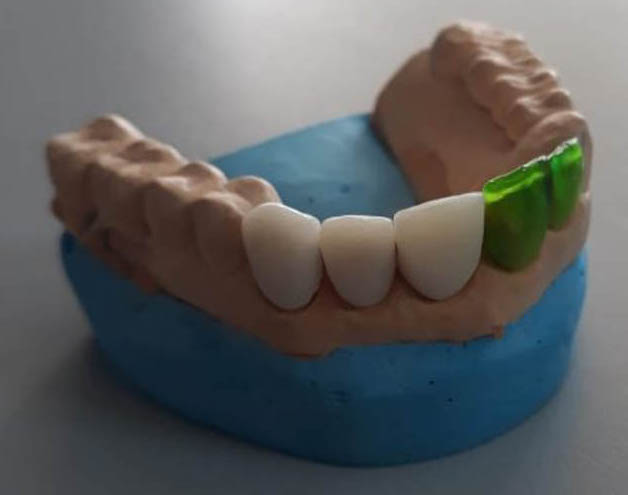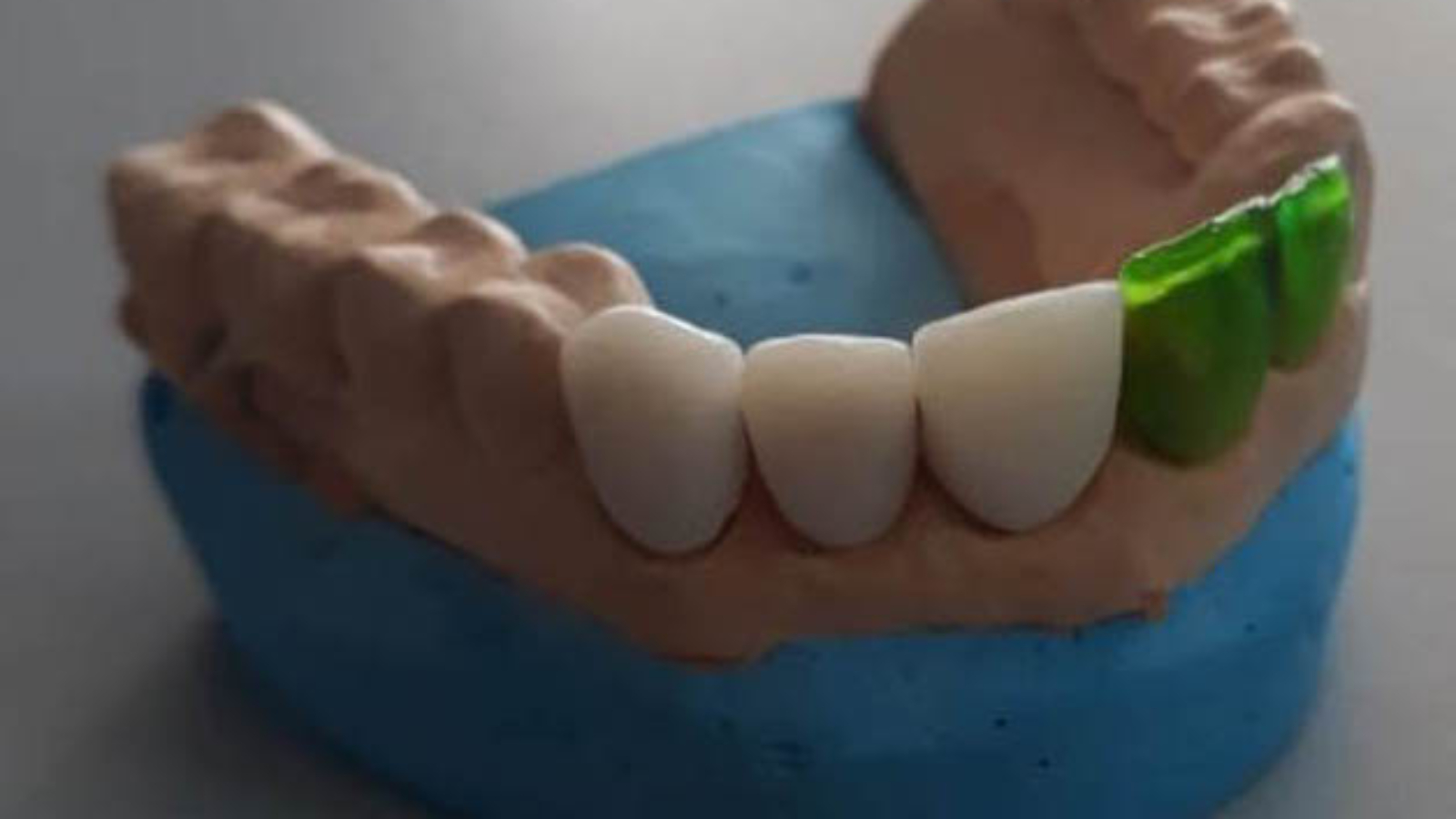Dental 3D printer and material manufacturer Dentafab has revealed that two of its resins have been given CE clearance for 3D printing crowns and dentures.
Designed for 3D printing complete or partial dentures, and temporary teeth, bridges and onlays respectively, the company’s PowerResins Temp and Denture materials have now gained European CE Class IIa certification. According to Dentafab, the accreditation “evidences” the biocompatibility and durability of its resins, in a way that could help boost the European adoption of its products moving forwards.
“For three years, our most popular resins for dental labs have been metal casting, emax press and our dental model resins, and since the new biocompatible temporary crown launched last year, we have seen great interest from dentists too,” explained Hakan Güzelgöz, CEO of Dentafab. “We are pleased by the CE clearance, as it will increase the spread of its use to many European countries.”
Dentafab’s orthodontic portfolio
Founded in 2013 as a subsidiary of the Turkish 3D printing firm 3BFab, Dentafab specializes in the development of photopolymers and systems for dental applications. At present, the firm’s machine portfolio includes the Sega, Mega and Vega 3D printers, with each featuring different print speeds and capacities to meet the varying needs of its clientele.
The all-rounder Sega system, for instance, houses a 120 x 68 mm build volume, and is capable of 3D printing at speeds of 90 mm/hour and at a precision of 50 microns, while the Vega is custom-built for accuracy with a 120 x 68 x 120 mm platform and a dimensional fidelity of 0.025 mm, but features a Z-Speed of just 30 mm/hour.
To complement its machine offering, Dentafab also markets a range of dental resins. Alongside its newly-certified PowerResins Temp and Denture materials, the company offers its Burn metal casting and OrthoModel vacuum forming resins, in addition to its SG and Model variants, which are made for 3D printing dental guides, implants and replicas.

Certified dental 3D printing
Developed specifically for temporary use within dental patients’ mouths, Dentafab’s PowerResins Temp material teams strong mechanical qualities with natural tooth-like aesthetics. With a flexural strength of over 120 MPa, the resin is marketed as being twice as strong as those of its competitors, as well as having sufficient durability to be utilized by patients continuously for up to three months.
When deployed alongside its proprietary Sega DLP 3D printer, Dentalab also says that the PowerResins Temp can be used to print a plate of end-use ready temporary teeth inside of 12 minutes, which in turn, can optionally be colored via glazing to give them a natural appearance before being easily post-processed.
The firm’s Denture resin, meanwhile, has been formulated with the translucency and durability required to yield dentures for long-term use. Given that 3D printed dentures often need to remain in patients’ mouths for years at a time, Dentalab’s material has been designed with built-in moisture resistance to prevent staining, and it says that the product is twice as resistant as that of a ‘leading competitor.’
Manufacturing on Demand
“These resins were developed after two years of R&D efforts. We worked closely with dental professionals to achieve great mechanical properties and a natural aesthetic look,” explained Güzelgöz. “Combined with our Dentafab Sega 3D Printer, dentists can print within 12 minutes and apply temporary crowns to patients while they remain on the dentist chair.”
“Making dentures with 3D printers provides accuracy, but it also speeds up the whole process.”
Having been awarded CE certification, Dentafab’s PowerResins Temp and Denture materials are now effectively compliant with EU-wide standards. In particular, CE Class IIa accreditation refers to ‘low-to-medium risk’ medical devices, thus the company’s resins have now been certified under the same regime used to test things like surgical gloves, hearing aids and ultrasound machines.
As a result, Dentafab potentially stands to benefit from increased European interest in its products, given that they can now be shipped from its Turkish base with CE compliance labelling, plus they will also have had to pass some form of quality assurance testing via audit, meaning that they’ve met a minimum standard threshold that demonstrates their level of quality.
AM’s bustling dental market
While CE certification will no doubt help Dentafab to better access European markets, it’s entering an already fiercely-competitive space, occupied by some of 3D printing’s biggest names. Formlabs has long-held interests in the dental sector, and it launched its new Permanent Crown Resin and a Soft Tissue Starter Pack in December 2020.
Not long afterwards, orthodontics manufacturer Candid revealed that it was working with 3D printer OEM Carbon to fabricate highly-customized clear dental aligner models. Using Carbon’s Digital Light Synthesis (DLS) technology, Candid has now introduced a new ‘Candid Pro’ service, through which practices can outsource and scale their aligner production.
Also, at around the same time, Keystone Industries agreed to make all of its KeyPrint dental resins available on Nexa3D’s NXE 400 3D printer. As part of the firms’ ongoing partnership, they have committed to combining their capabilities in dental, photopolymers and 3D printing, to expand the range of functional and affordable dental offerings to the market.
* This article is reprinted from 3D Printing Industry. If you are involved in infringement, please contact us to delete it.
Author: Paul Hanaphy


Leave A Comment